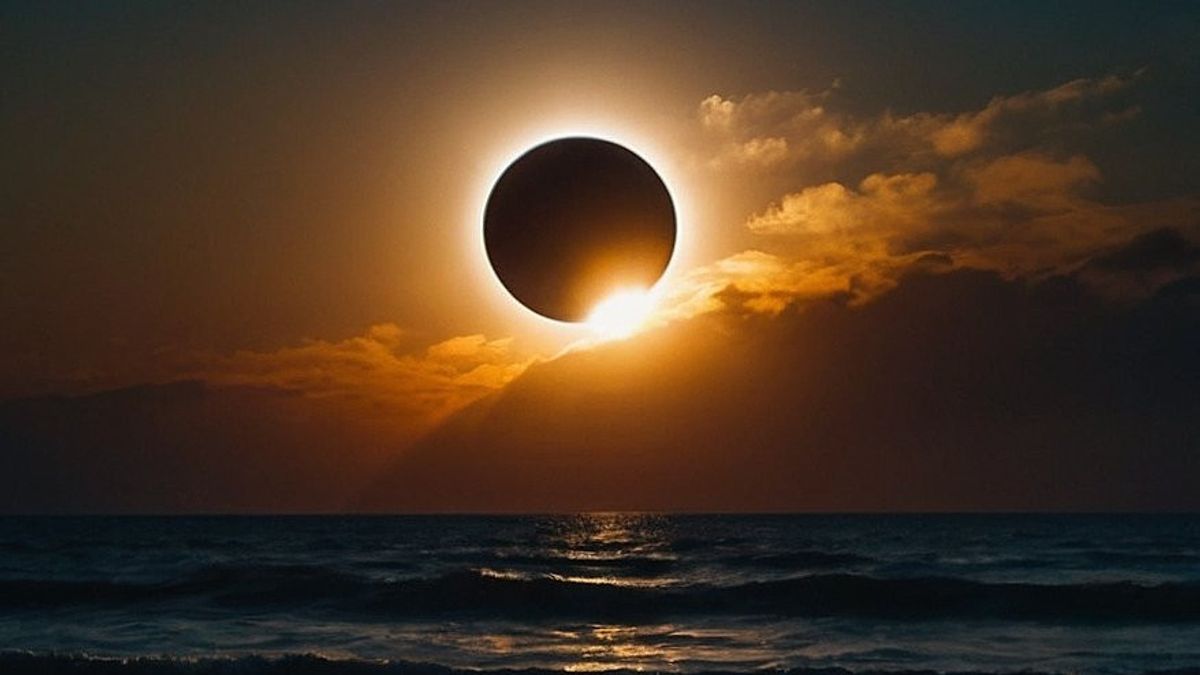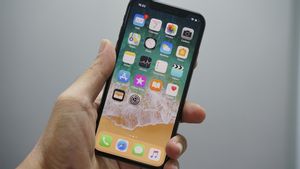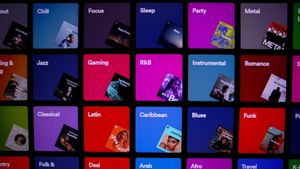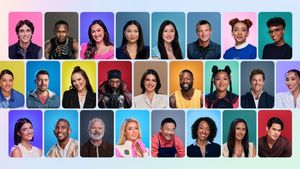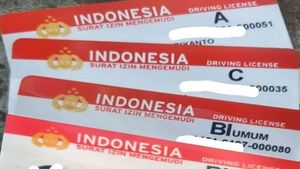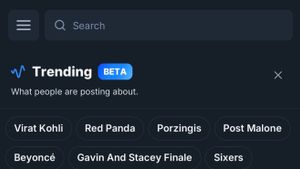JAKARTA - Monday 8 April, millions of people in North America witnessed the solar eclipse. Some of them even took the risk of damaging their vision to see these rare events.
"Now my eyes feel hot and my neck hurts," wrote one user X from Manitoba, Canada. Meanwhile Google's search for'sick eyes' is rising sharply.
Although doctors and NASA officials have consistently asked the public to only see eclipses with appropriate precautions, such as eclipse glasses or through shadows falling on'safe handheld devices,' some people cannot resist the temptation to see firsthand.
About 100 individuals in the US and Canada reported to eye care professionals following the August 21, 2017 solar eclipse, complaining about eclipse-related retinal damage, according to an informal survey for the American Astronomical Society.
Here are some symptoms you need to watch out for if you're worried that you've been staring at the sun for too long during last Monday's eclipse - either accidentally or in irrational excitement.
One big surprise: 'eye pain' is not a guaranteed symptom of eye damage. Because the human retina, on the back of the eye, has no pain nerve, you may not or may not be able to feel discomfort to give you an early warning of the damage caused by staring at the sun during the solar eclipse, experts say.
Retina Anda dapat rusak bahkan sebelum Anda menyadarinya, ungkap NASA. dan pada saat itu mungkin sudah terlalu untuk menyelamatkan penglihatan Anda.
One of the most vulnerable parts of the retina, according to doctors, is macula: a'small, but important' area that is critical to distinguishing details like written texts.
Even a few seconds of seeing the sun during an eclipse can burn the makula temporarily or permanently, said Johns Hopkins' topallological officer Neilmble, Jun Kong, and J. Fernando Arevalo.
"When the retinal tissue is destroyed, it cannot regenerate, causing permanent central vision loss," the trio wrote in the Journal of the American Medical Association last March.
The impact of damage to macula can be strange: seeing your own face empty in the mirror or not being able to read words in the newspaper, as if it were empty.
What is needed is only about 100 seconds of exposure to solar radiation causing damage to a person's retina, although time will vary based on solar intensity, which can vary based on time and geography, as well as the previous person's eye condition.
Although some medical interventions have been attempted using steroids, the American Association for Pediatric Ophthalmology & Strabismus reports that there is no evidence that they have succeeded in solar retinopathy.
Instead of being 'injured,' experts with the American Academy of Ophthalmology (AAO) recommend that individuals who are worried see 'visual symptoms in four to six hours' or even on the day after the solar eclipse.
SEE ALSO:
These symptoms, signs of damage to'solar retinopathy', include: headaches, blurred vision, 'blind spots' in one or both eyes, unusual colors or changes in color to your vision, eye sensitivity, or visual distortion.
The distortion can be very unusual, making objects look smaller than the real thing, or creating strange spins or changes in your central vision. Fortunately, these scary symptoms can improve over time.
Many people recovered after three to six months, said AAO spokesman Susanne Medeiros, last year. but some people will suffer from permanent vision loss, in the form of small blind spots and distortions.
Statistically, about half of those diagnosed with 'eclipsing blind' will recover their vision, completely, after six months, according to B. Ralph Chou, professor of emeritus at the University of Waterloo in Canada and leading expert in eclipsing eye safety.
Although'medications' are not available, experts recommend contacting an ophthalmologist as soon as you suspect that you may have solar retinopathy or eclipse-blind as a result of Monday's celestial events.
The English, Chinese, Japanese, Arabic, and French versions are automatically generated by the AI. So there may still be inaccuracies in translating, please always see Indonesian as our main language. (system supported by DigitalSiber.id)
